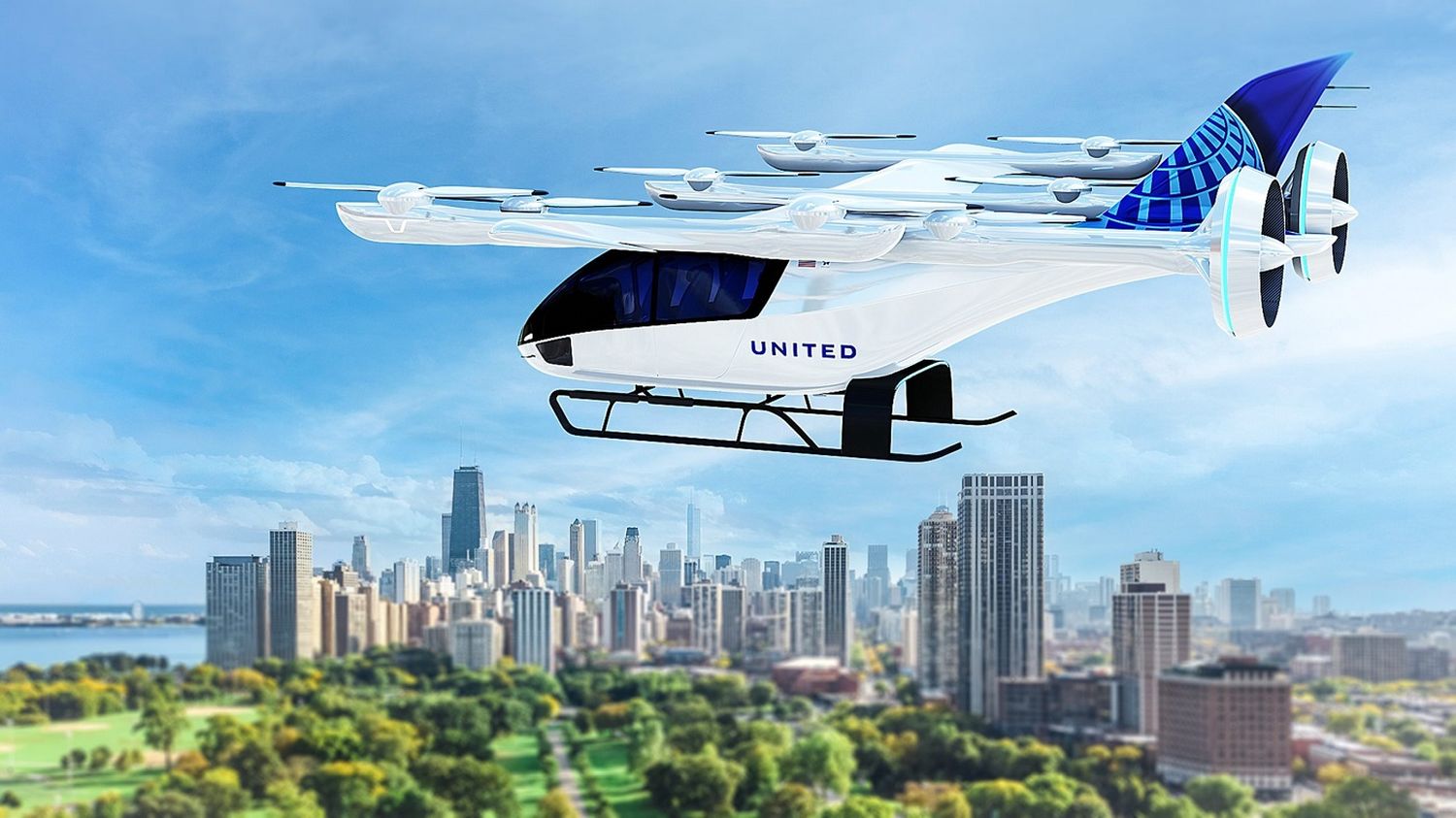United to invest 15 million dollars in Eve’s eVTOL
United Airlines confirmed today that it will invest 15 million dollars in a conditional purchase agreement for two hundred electric vertical take-off and landing (eVTOL) aircraft developed by Eve Air Mobility, Embraer’s subsidiary company for the manufacture of this type of electric aerial vehicles. The order includes an option to purchase an additional two hundred aircraft.
Under the terms of the agreement, both companies will work on future projects to assess the capabilities of this type of sustainable mobility. The works will include studies on the development, use and application of Eve’s aircraft and on the possibilities of developing ecosystems of urban air mobility (UAM)
This is not the first investment in sustainable aerial vehicles by the airline, which had already made a previous payment of ten million dollars for the acquisition of up to one hundred units of the eVTOL «Maker», developed by Archer Aviation. Furthermore, it was the first major American carrier to create a corporate venture fund, called United Airlines Ventures (UAV), to support the company’s efforts to achieve net-zero carbon emissions.
«United has made early investments in several cutting-edge technologies at all levels of the supply chain, staking out our position as a leader in aviation sustainability and innovation», said Michael Leskinen, President of United Airlines Ventures. «Today, United is making history again, by becoming the first major airline to publicly invest in two eVTOL companies», he added.
In addition, the operator will join the consortium led by Eve that will carry out the first urban air mobility simulation in the United States, starting on 12 September.
«United’s investment in Eve reinforces the trust in our products and services and strengthens our position in the North American market», said Andre Stein, co-CEO of Eve Air Mobility.
Eve’s eVTOL
According to the developer, the aircraft will have a range of up to 60 miles (96 kilometers). It will reach a cruising speed of up to 125 miles per hour (201 kilometers per hour). In addition, it will not generate emissions at the time of flight and will reduce noise levels by 90% compared to conventional aircraft currently in operation. It will be able to carry up to four passengers and will be certified to operate with a single pilot.
The Brazilian company hopes to obtain certification for its electric vertical take-off and landing aircraft in 2025. In that case, the model would be introduced to the commercial market in early 2026. The first deliveries to United are expected to take place that same year.
In Brazil, the product will be able to serve one of the most interesting markets worldwide, due to the great demand for low-emission urban air mobility alternatives in densely populated cities with recurrent traffic congestion in the South American country. However, the company is also working to develop alternatives that respond to the growing interest in this type of technology around the world.


Para comentar, debés estar registradoPor favor, iniciá sesión